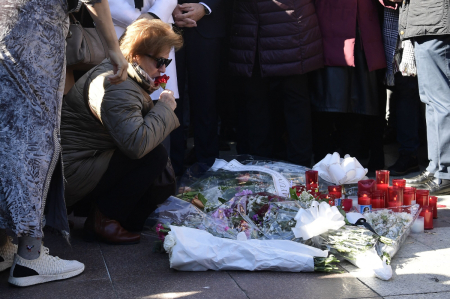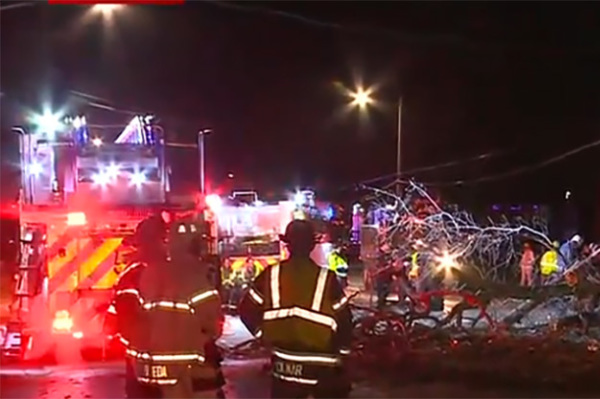Suspect in deadly Spanish church attacks ordered to have psychiatric evaluation

A Moroccan man who allegedly killed a church officer and injured a priest during attacks on two churches in the southern city of Algeciras in Spain has been ordered by a judge to have a psychiatric evaluation.
The alleged assailant in the Jan. 26 machete attacks that killed one person and left four others injured in attacks on San Isidro Church and Nuestra Senora de La Palma Church in Algeciras has been named as 25-year-old Yassine Kanjaa, according to authorities.
A Spanish court told The Associated Press the judge's order is temporary as the incident is being investigated as a terrorist attack. Police suspect the perpetrator acted alone.
Spain's Interior Ministry said Kanjaa had been under a deportation order since June 2022 because of his unauthorized immigration status.
Francisco Garcia, secretary general of Spain's Episcopal Conference, told Reuters at the time he experienced "great pain" because of the attack on the two priests.
"These are sad times of suffering; we are united by the pain of the victims' families and for the Cadiz Diocese," he stated.
The Telegraph reported that witnesses heard the suspect shout "Allahu akbar" and "death to Christians" as he attacked the churches.
Kanjaa had "no prior criminal or terrorism convictions in Spain or allied countries," AFP quoted an interior ministry spokesperson as saying.
A roommate of Kanjaa's noticed disturbing developments in the suspect's behavior in the weeks leading up to the attacks, including thinking that a teddy bear is the devil.
"He is a paranoid person; it is not jihadism," the roommate told the Spanish newspaper El Pais. "He threatened his own roommates with a knife. That kid is unwell; he used drugs, then he quit and started to pray."
Last October, the Migration Policy Institute issued a report that said that Spain is "one of Europe's largest migrant destinations," with roughly 7.3 million of its residents being immigrants.
"[R]esponsibility for immigrant integration has largely been handed to Spain's 17 autonomous communities, which enjoy wide authority as result of the country's devolved political system," noted the report.
"Matters relating to asylum, border control, and legal status are exclusive to the national government, but policies key to integration — including social services, housing, and employment — have been granted to subnational governments."
According to a 2018 report from the British Broadcasting Corporation, over 30,000 individuals illegally entered Spain that year, "the highest in more than a decade."
"Once they reach Spain, they keep on moving — some continue to other European countries, others try to start a new life in Spain," reported the BBC at the time.
Throughout Europe, hate crimes and persecution against Christians have skyrocketed in recent years. According to a report released last fall by the Observatory on Intolerance and Discrimination Against Christians in Europe, there were more than 519 incidents classified as hate crimes against Christians in 2021, with 30 occurring in Spain.
Nicole Alcindor is a reporter for The Christian Post. She can be reached at: nicole.alcindor@christianpost.com.






















